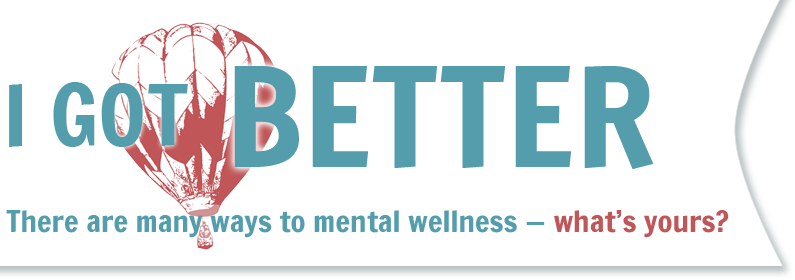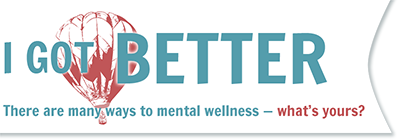I Gained Strength and Resilience
Peggy Hardwick; Albuquerque, NM

During your mental health care, have you often felt hopeful about your chance of getting better?
Yes. I became hopeful about getting better after I fired my university-employed psychiatrist and went to see a psychologist who runs a community mental health clinic.
During your mental health care, have you often felt hopeless about your chance of getting better?
Yes. The first psychiatrist I saw continually emphasized that my “bipolar disorder” could not be cured, and that I would be on psych drugs for life. She even once told me I was lucky that my employer had a disability plan, because I would probably end up on disability.
Has a mental health provider ever told you that you could reach a personal goal despite your psychiatric diagnosis (for example, education, career, independent housing, relationship, children, etc.)?
Yes. I eventually saw a psychologist who told me I did not have bipolar disorder, and who told me (with a smile) that I would not end up on disability because he would testify that I’m not disabled. Really, talking to someone who had faith in me, and who really listened to me made all the difference in the world.
Has a mental health provider ever told you that you could not reach a personal goal because of your psychiatric diagnosis (for example, education, career, independent housing, relationship, children, etc.)?
Yes. The psychiatrist who diagnosed me with bipolar disorder told me that I would probably have to change my goals and go on disability. Aggghhh! I really hate to even think about all the ways that doctor undermined my self-confidence!
If you overcame hopelessness that you could get better from a mental health or emotional problem, was there a turning point for you?
The turning point was picking up the phone and calling a psychologist that I’d seen many years earlier. I thought he’d probably retired, and as it turns out he had stopped seeing patients. But he remembered me and agreed to see me. In the book “Agnes Jacket” the author makes a reference to “healing through relationship.” That fits my experience. With the psychologist I saw, just talking to him, being heard and seen, listening to him, laughing (he’s funny as hell) and learning was the key to recovery. I haven’t seen him in over a year, but I know I can call him, and see him if I need to.
Tell us what recovery means to you. How would you define recovery from mental health or emotional problems in your own words?
Recovery means crawling out of a horrible black pit of hopelessness and knowing that I don’t have to go back there again. It means getting up in the morning and riding my bicycle to work, feeling the good clean sweat and the pumping of my lungs and heart. It means peace in the mind. It means paying the bills and cleaning the bathroom and tending to day to day life as it comes. It means taking a measure of pride in what I do every day. It means too many things to write in this small space.
If you could send a brief message to someone receiving mental health care today who is feeling hopeless about getting better, what would you say?
You’re not alone.
Can you give examples showing you have gotten better from a mental or emotional problem, such as how you are doing well or accomplishing goals you have chosen?
Five years after being diagnosed with Bipolor I and being told I would end up on disability and be on drugs for the rest of my life I’m living and thriving, still employed (though getting close to retirement), physically and mentally healthy. I sometimes wonder whether I would change my experience with madness if I could. And I think the answer, with some slight hesitation, is no. I learned a lot about myself. I gained strength and resilience. I think, I hope, I’m a better person.


